The Russian Initiative organization tells how the Russians historically appeared in Leipzig and how they attracted the Germans to study the Russian language.
Without Kevordo

Within the framework of the project “The Department of the Russian Language at the University of Leipzig”, the Russian Initiative Public Organization tells how the Russians historically appeared in Leipzig, a small city in the east of Germany, and how they attracted the Germans to study the Russian language.
In the Russian Empire, Leipzig was known for its educational institutions, in particular one of the oldest universities in Europe, in which many Russians studied. Among the students were prose writer and philosopher Alexander Radishchev, writer Mikhail Prishvin and chemist Alexander Bazarov, physiologist Ivan Sechenov, military surgeon Nikolai Pirogov, doctor Ivan Pavlov, neurologist Vladimir Bekhterev were internships. The first Russian consulate in Germany was opened here. But the first origins of the Russian community in East Germany should be sought in the 16th century, when the trade relations between Russia and Leipzig were first established.
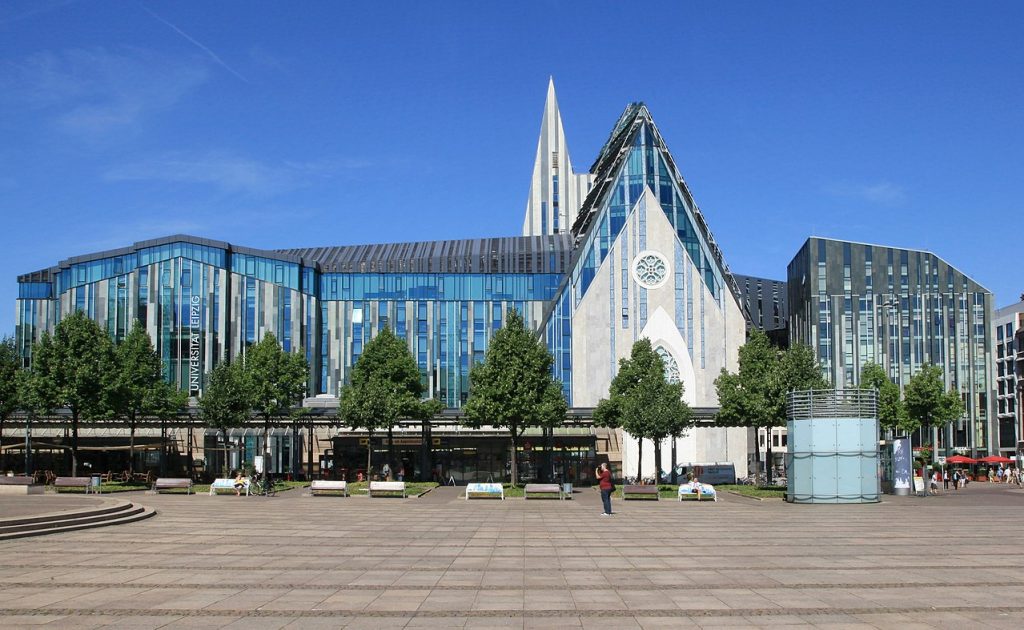
The main building of the University of Leipzig on Augustusplatz
The first traces of Russians in Leipzig
Leipzig has been history since 1165. Initially, the area on which the city later grew was extremely convenient for trade and is therefore popular with merchants. Margraph Meysen Otton Vetinsky rich gave the settlement the rights of the city, and they began to take a fee for entering through the fortress wall from merchants. It is not known for certain when for the first time Russian merchants became interested in the Leipzig Fair, but the first documentary information dates back to 1573.
Since 1580, in the House of Freundschen Hof, 4 in Leipzig Street, not far from Markt (Markt), was the Orthodox Greek prayer house of St. Great Martyr George,-write on the official website of the Holy Alekseevsky Church in Leipzig.
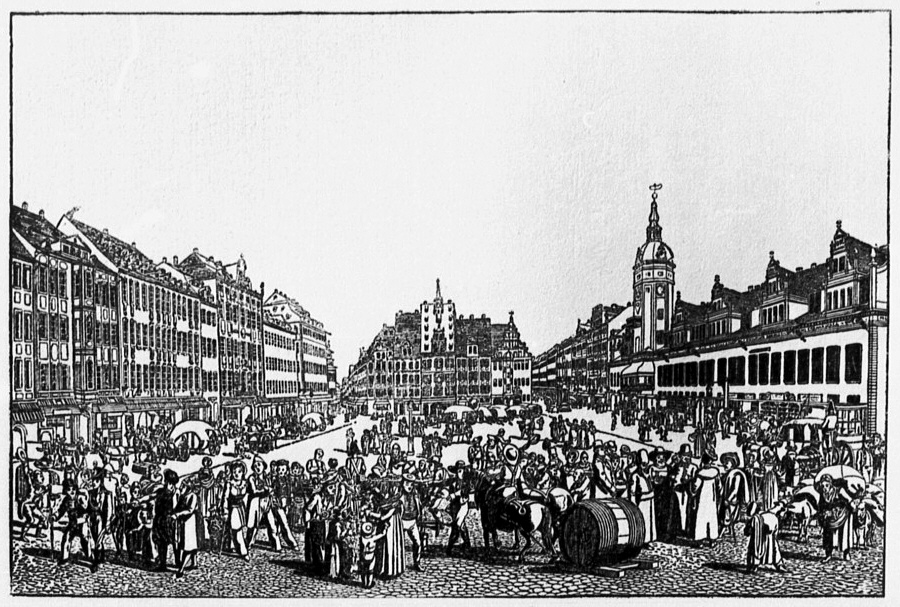
Trade in the Leipzig market approx. 1800
Arrival in Leipzig Peter I
The prayer house was in Leipzig until 1913-before the consecration of the Russian church church. He served as a place of prayer and worship for the fairs of Russians, Greeks and other Orthodox people who were in the city. It is known that in 1698, Peter I stopped on the way to Holland in Leipzig: he lived in the Royal House Hotel, standing on a market square, and visited the Leipzig Fair.
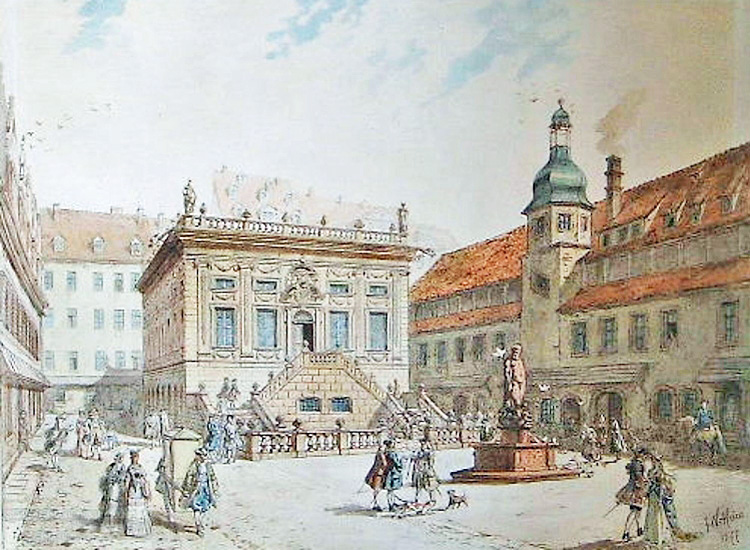
Leipzig market with the exchange approx. 1800. The work of 1877 Friedrich Wilhelm Heine.
Orthodox Russian community
In the Yearbook of the rector of the Embassy Church of St. Vladimir in Berlin Archpriest Alexei Petrovich Maltsev (1854-1915) says:
In 1776–77, in Leipzig there was an Orthodox Russian community led by Hieromonk Father Paul. As indicated in the “targeted, postal and road calendar of Leipzig”, Father Pavel “Preacher and Priest for all Russian gentlemen students” lived in Leipzig from 1772 to 1775.In the same calendar, all the Russian gentlemen who were then studying at the University of Leipzig were listed.
This Russian community, consisting of students from the University of Leipzig, had a home church of St. Great Martyr George. It was rebuilt in 1751 specifically for Russian students, among whom was the illegitimate son of Catherine II, A. G. Bobrinsky. Students at their own expense invited a Russian priest to the house church. Returning to their homeland, they handed over icons and other objects to the local Orthodox Greeks.
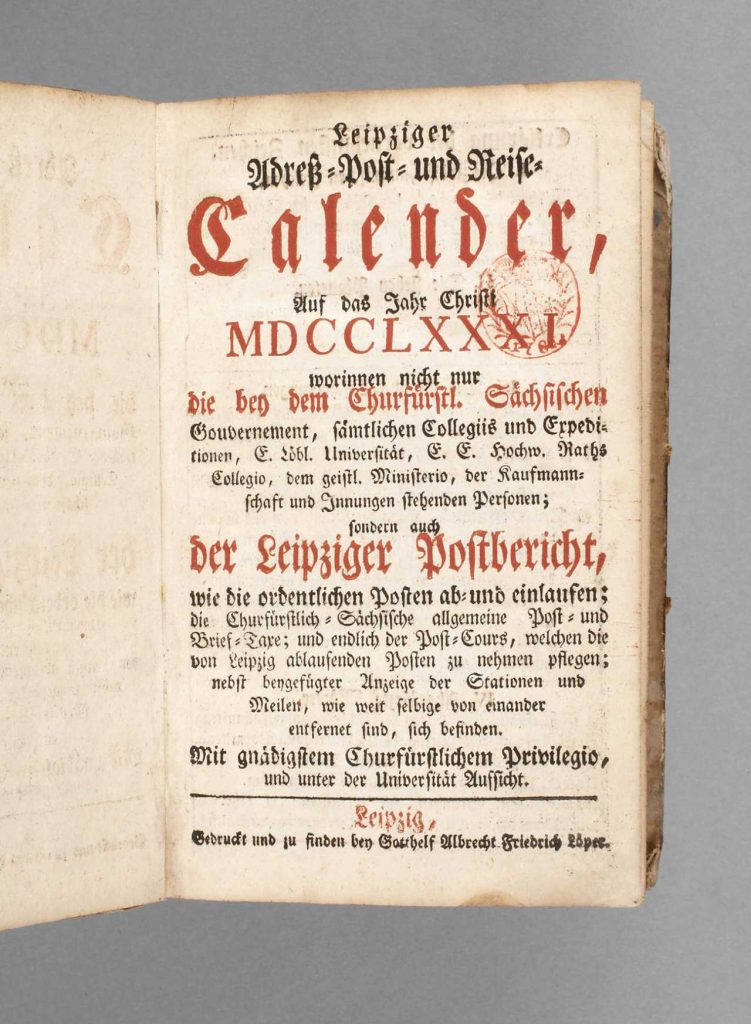
Address, postal and road calendar of Leipzig for 1781
Leipzig as the capital of education for Russian students
Leipzig was chosen as a place of study for Russian students precisely because there was an Orthodox church in the city. Empress Catherine II herself said that students were required to attend the local Eastern (Orthodox) church. Follow the sim and was instructed by Fr. Pavel, who was a priest and confessor for the students.
He also began teaching Russian here for the first time for the Germans. Breitkopf, a well-known local publisher of that time, mentions him:
The priest, who is among the Russian students, has made the Russian language more popular in Leipzig than it was before.
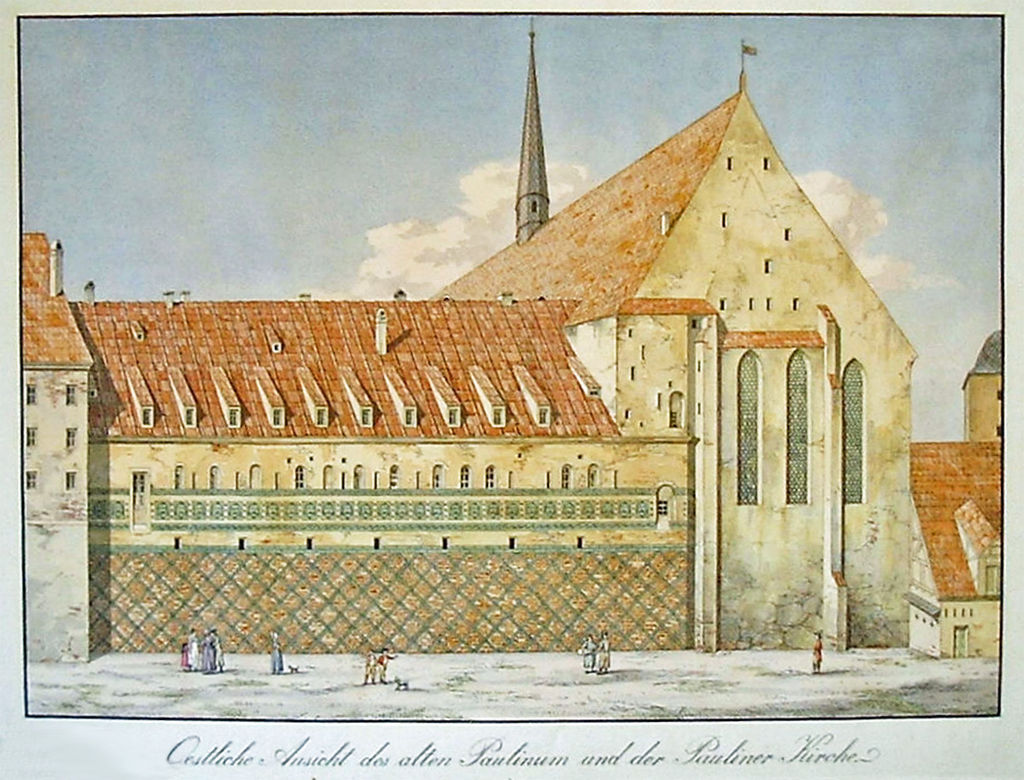
Facade of the church of St. Paul in Leipzig (until 1830)
Father Pavel not only taught students Russian literacy, but took care of the maintenance of the entire Russian community. This is evidenced by various historically proven details: he borrowed money from the Russian publisher Subbotin and helped with the translation of the power of attorney of the new Russian consul in Leipzig.
First Russian Consulate in Leipzig
On February 6, 1784, a Russian consulate was founded in Leipzig. Collegiate assessor F. Sapozhnikov, who had previously been consul in Lübeck, arrived as a Russian consul. His duties included helping and supporting in every possible way the trade people from Russia who arrived at the fair, as well as being subordinate and in contact with the Russian embassy in Dresden, which had been there since 1688.

Within the framework of the project “Department of the Russian Language at the University of Leipzig”, the public organization “Russian Initiative” will continue to talk about the Russian world on the territory of Leipzig and Russian students of the University of Leipzig. This will make it possible to note the importance of maintaining Russian-German relations, as well as to support the work of the only department of the Russian language in East Germany.



